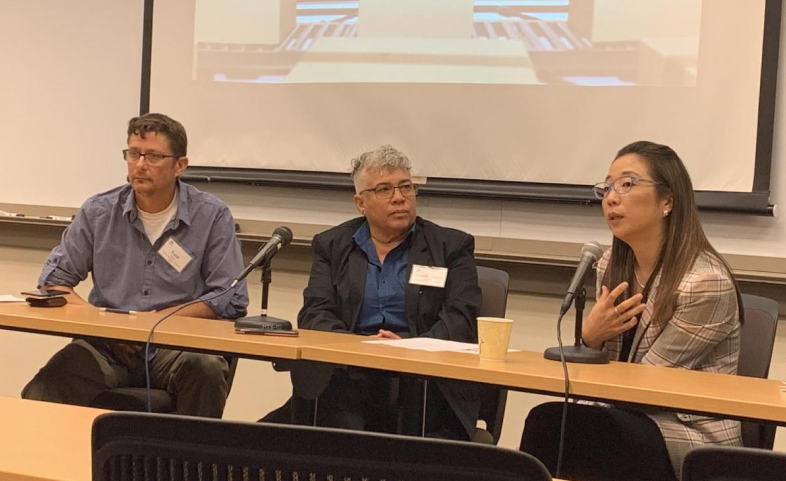
Soft Skills Training Teaches Electricians to Fix Fuses, Not Blow Them
Community colleges award budding trades workers badges in empathy.

Community colleges award budding trades workers badges in empathy.
Sure, a plumber should be able to stop a leak or fix a toilet. Those job skills are essential, and easily measured.
But what about the rest of the equation — the people skills customers also want? How does an employer really know if an applicant has what it takes? Can’t there be a test or something?
Maybe. Several colleges are piloting a microcredentialing program that provides students “badges” for mastering so-called “soft” skills. During the Education Writers Association’s higher education seminar in September, reporters heard from an instructor and a student at one of the pilot schools, Central New Mexico Community College.
It took 76 years for the analog phone to reach 50 percent of the population. It took just a decade for the cell phone to reach 75 percent of the population. The numbers illustrate the technological forces reshaping the workplace, said Michelle Weise, the chief innovation officer for Strada Education Network, an Indianapolis-based nonprofit.
If change feels fast, she said, that’s because it is.
“All of us are going to have to harness the power of education, over and over again,” Weise said.
The numbers on the risk of obsolescence are mixed, Weise said. Studies indicate that anywhere from 8 to 47 percent of jobs could be replaced by computers.
The good news is that the American workplace values qualities a computer can’t replicate: judgment, emotional intelligence, the ability to humanize bad news, to name a few. These traits are in greater demand, she said, just as fewer students are graduating from colleges and universities with humanities degrees.
While many employers want to hire workers with strong “people” skills, they have a difficult time communicating their needs through a job posting, Weise said. And if employers can’t explain what they’re looking for, it stands to reason that they often struggle to spot it during the hiring process.
The microcredentialing pilot program is an attempt to bridge this gap. Education Design Lab, a Washington, D.C. nonprofit, is conducting the pilot at Central New Mexico Community College, San Jose State University and the University of Maine. The goal is to reach 5,000 students over the two-year trial.
Other microcredentialing programs have faced pitfalls because they were created by postsecondary institutions without regard to what employers actually wanted, noted Weise.
But Education Design Lab says it is “working in tandem with college and industry partners … to identify the specific interpersonal skills needed for entry-level positions and help create a process to equip college students with the right combination of skills to meet the regions’ economic needs.”
Central New Mexico meets twice a year with its industry partners to get advice on which “soft” skills the pre-professional instructional programs should be teaching, explained Victoria Denise Ojeda, a licensed journeyman electrician and full-time faculty member at the Albuquerque, N.M.-based community college. Local employers such as Facebook and the U.S. Department of Energy’s Los Alamos and Sandia National Laboratories are asking for the kind of skills the badging program covers, she added.
As a result of employer requests, Central New Mexico offers students badges for “soft skills” such as initiative-taking, critical thinking, collaboration and even empathy.
“What they’re trying to do is really quite interesting,” Weise said after the EWA panel discussion.
CNM student Todd Scott said some of his classmates were skeptical about the badging program. They wondered aloud why they needed soft skills to work in the electrical trades.
But for Scott, a student studying programmable logic controllers, the value is clear. It’s the difference between working at an electrical company and owning one.
“You’re going to need social skills for that,” he said during the EWA panel.
In the short run, Ojeda hopes the program gets her students in the door with employers. Central New Mexico will track the project to see if students who earn microcredentials get interviews — and land jobs. The college hopes to have some tangible data by next semester.
Weise cautioned that even as qualities such as empathy are important, in everyday life and the workplace, they are no substitute for “hard” skills, such as a foundation in the STEM disciplines of science, technology, engineering and math.
“Human skills alone are not enough,” Weise said.
Your post will be on the website shortly.
We will get back to you shortly